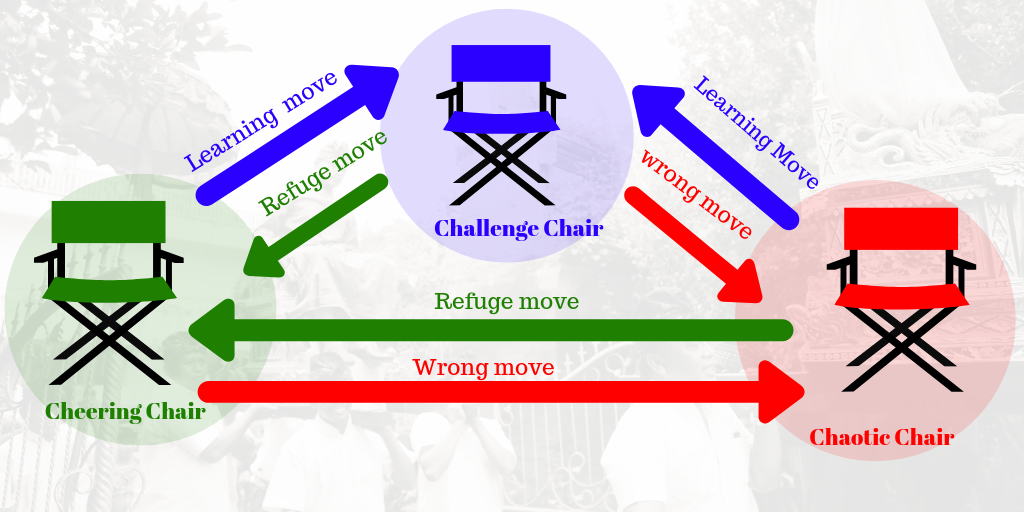Detached PhaseDetached phase is stage of confusion, depression anxiety caused by the accumulation of cultural experiences. Most people fail their assignments and leave the host culture because they do not have enough support to manage the accumulated cultural experiences. This is a very critical phase in the integration process. It is the stage when the learning is sinking in but it could also be a disastrous phase when you do not get enough cultural support to boost you and help you climb up to the integration phase.
Here are some characteristics of the detached phase.
|
Traveler PhaseThe traveler phase is the first step into a new culture whereby new experiences are fun and exciting. But unfortunately the excitement and the joy do not last long until you start going down to detached phase. As you go down the curve it is very important you seek cultural adjustment support to avoid a strong hit of culture shock.
These are some of the characteristics of the traveler phase:
Integrated PhaseIntegrated phase is stage of acceptance, maturity and realistic reasoning. After heavy experience and persistence you develop strong mechanism to copy with the new culture. You understand why people behave the way they do how this is related to they community history and realities. With your realistic reasoning you understand the difference between your own culture and the host culture and develop strategies to relate well in the host culture. Though you do not love everything in the culture but you appreciate the culture and the people. This is a stage where you can only be successful in the host culture.
Here are some characteristics of the integrated phase:
|
Given its importance time is one of the concept that is very hard to deal with cross culturally. In some cultures everyone's
minutes is scheduled and if you do not get to finish what you planned on time, you schedule it for another time or day and do the following planned thing. By doing so you do not only respect your schedules but also other people's time. Unfortunately not all cultures are programmed that same way.
For other cultures life isn't a matter of respecting schedules and milestones, but of moments well spent. For collective and relationship based cultures, what matters is not the clock ticking but quality and productive time you get to spend doing something or talking with someone. Everything is about people and what matters for the people.
I am not here trying to judge which culture does the right thing between respecting and keeping time and acting in the moment and make the most out of the present. My intention is to help you understand what the other person values which in turn informs the way they approach time in their culture. Now, you might be asking yourself what is the most beneficial way? I am sorry I do not have an answer for you, it all depends on where you are, who are you dealing with and what you want to achieve. To finish this blog, I only have one advice for to deal with time across cultures.
minutes is scheduled and if you do not get to finish what you planned on time, you schedule it for another time or day and do the following planned thing. By doing so you do not only respect your schedules but also other people's time. Unfortunately not all cultures are programmed that same way.
For other cultures life isn't a matter of respecting schedules and milestones, but of moments well spent. For collective and relationship based cultures, what matters is not the clock ticking but quality and productive time you get to spend doing something or talking with someone. Everything is about people and what matters for the people.
I am not here trying to judge which culture does the right thing between respecting and keeping time and acting in the moment and make the most out of the present. My intention is to help you understand what the other person values which in turn informs the way they approach time in their culture. Now, you might be asking yourself what is the most beneficial way? I am sorry I do not have an answer for you, it all depends on where you are, who are you dealing with and what you want to achieve. To finish this blog, I only have one advice for to deal with time across cultures.
What You Should Know about Communication in Rwandan CultureThe same way having ten fingers does not make you a pianist speaking the same language does not necessarily guarantee effective communication when communicating across cultures. Minor cultural differences sometimes completely blocks team communication. Here is few things you should know about communicating with your Rwandan coworkers.
|
Indirect Communication
In communication Rwandans start with background information, supportive arguments and sometimes examples before they get to the point and it is believed the best communicator has to lay a very good foundation for their message. Going directly to the message would either mean you not a good communicator or in some instances it could be very rude. That is why in meetings very often Rwandans start with brief social /family talks before diving into the business agenda.
Subtle Communication
Rwandan use subtle message and the listener has to read between the lines to understand the message. Therefore, it is very important to look at facial expression and read the cues to better understand the situation. For example, if a Rwandan owes another Rwandan some money, the money lender will never say give me back my money "mpa amafaranga yanjye." Instead they will say have you probably found the things " Mwaba mwabonye twatuntu?". The lender avoids mentioning money but calls it the things.
Not expressive
Though Rwanda neighbors Uganda, Tanzania and Congo which are reasonably expressive culture Rwandans are noticeably non expressive. Rwandans rarely express their utmost anger nor happiness. Therefore if you give a gift to a Rwanda do not expect a loud shout expressing happiness and gratitude. A simple "thank you very much" will be enough for them to express their deepest happiness. Likewise, if Rwandans are angry they never yell.
! Please note that this very high level cultural orientation. There are some who communicate differently depending on their education background, community and individual personalities.
! Please note that this very high level cultural orientation. There are some who communicate differently depending on their education background, community and individual personalities.
Five Things That Will Help You Relate Well With People From Other Cultures
1. Stop!Whenever you are going to meet someone from a different culture it is advisable you take sometime to dig and find out possible cultural differences you might have and plan the conversation accordingly. For example if you come from a non pet culture and you are meeting someone from a pet culture you should set a reminder to personalize the pets when they come with him/she ( it).
Taking time to learn about the other culture and strategize will significantly reduce your culture shock and ultimately improve your relationships. |
2. Avoid Quick Judgment
We all interpret everything using our cultural lens but unfortunately sometimes we get it wrong which is very normal. To avoid quick judgment you should always try and assume the best. For example if you come from West and someone from Africa tells you you are fat, though it might hurt you just assume that maybe fat is good in their culture. Since assuming helps for a short time and sometime might not be right, you should always ask to make you sure you understand what the other person means.
3. Find one thing about their culture and appreciate it
I believe it and it is true every culture has got beautiful things but you should be willing to find them out. Since we are all attached to our cultures everyone will appreciate a good and genuine word about their culture. Therefore, before you meet the person from a different culture try and find at least one thing that you genuinely believe is beautiful and share it during the conversation. This will break the strangeness and draw the person closer.
4. Do not try hard
Do not try to loose all of you to adapt to the new culture because people will easily see that you are not the real you. Always remember your core values and maintain them because they make you who you are. However, you should also know your flexible area that you can easily change to adapt to the new culture and relate with people in the culture.
5. Be curious
We all want to hang around with people who are more like us. But unfortunately we do not learn a lot from people whom we share a lot of things. Curious people are willing to leave their comfort zones and dive into new culture and learn and share the differences. If you are new in a culture, I recommend you reduce the time you spend in the expat community and schedule meetings with local people, this will not only increase your cultural knowledge but also will significantly increase your community trust.





